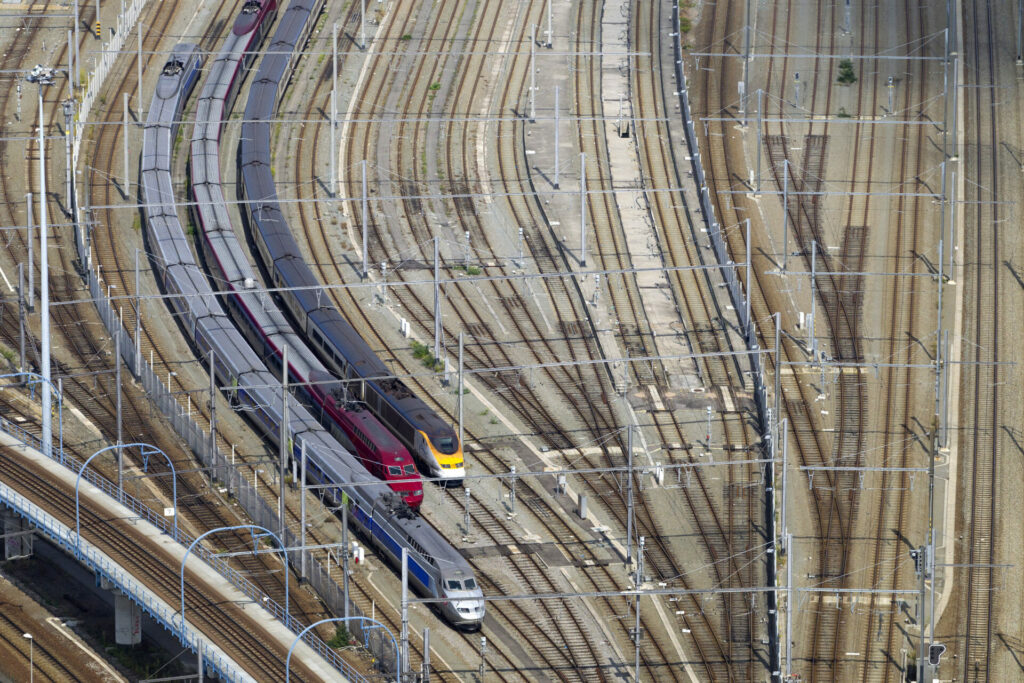An influx of international train companies passing through Brussels could lead to railway congestion problems warns SNCB CEO, Sophie Dutordoir.
Eager to respond to the clear public enthusiasm for rail travel – in particular long-distance routes that could serve as alternatives to flying – numerous operators have announced plans to pass through Brussels or have it as a terminal for journeys that venture beyond the Belgian border. Six operators have plans to connect Amsterdam and Paris via Brussels, using both high-speed trains and classic connections.
Dutordoir highlights the strong competition within this market. The SNCB head suggests Belgium and Infrabel, the network manager, will need to manage these demands and prioritise public operators.
The entrance of international connections will indeed impact SNCB’s services. “If you add two operators, then ten public service trains must disappear during peak hours,” she calculates. If these estimates hold true there is a chance that up to 50 trains might disappear if more operators are accepted.
Related News
- New Brussels-Berlin night train launches to warm welcome
- Trains cost three times more than flying this holiday season
- Brussels-Berlin night train review: Niche nostalgia or rail for the future?
Dutordoir cites the case of the peak-time train from Ghent-Dampoort to Brussels. To the frustration of commuters, this train now departs an hour earlier in order to accommodate a Eurostar service.
Indeed, Dutordoir highlighted that rail congestion already impacts train punctuality. According to Belgian company data, in the first ten months of the year, 88% of trains arrived on time – a performance that previously was consistently higher than 90%. Congestion accounts for a 2% decrease in this punctuality statistic.

